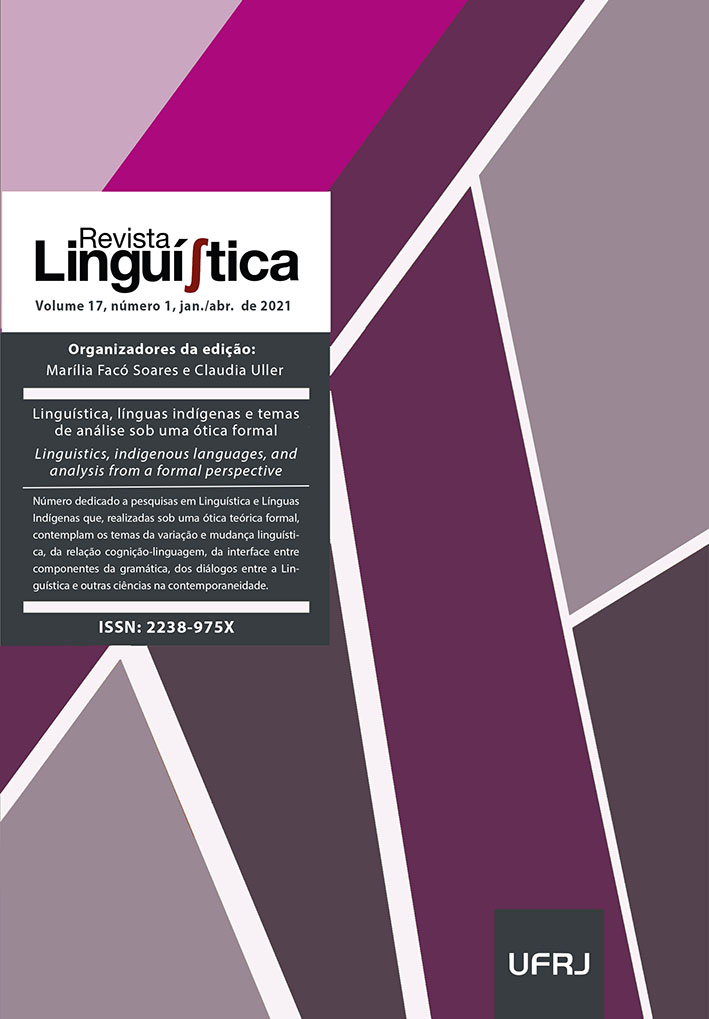Towards an agenda to investigate language development in an indigenous group in the Amazon
DOI:
https://doi.org/10.31513/linguistica.2021.v17n1a55123Keywords:
quantification and numeracy skills, number systems and conceptual development, language acquisition, language and cognition, Amazonian languages.Abstract
The present work advances a research agenda within the broader field of language and cognition for the study of the expression of numerical concepts in early development. Lying at the core of the proposed agenda is the question of the relationship between the acquisition of the first language and the expression of numerical concepts in infancy. Two processes exist to explain the expression of numerical information in languages. The first takes place through the grammatical structure of language (its quantificational system). The second is the direct expression of number with the use of number language expressions. The first process is called “grammatical number”, the second, “linguistic number”. In an attempt to raise questions that lie beyond previous investigations, and to expand linguistic and cognitive considerations, the proposal includes discussions regarding various numerical abilities in differing linguistic contexts in light of conceptual development of number systems. We hope this proposal will raise interesting cognitive and linguistic issues within the scope of languages spoken by native Amazonian peoples.
Downloads
Published
Issue
Section
License
Authors who publish in the Revista Linguí∫tica agree with the following terms:
The authors maintain their rights, ceding to the journal the right to first publication of the article, simultaneously submitted to a Creative Commons license permitting the sharing with third-parties of published content as long as it mentions the author and its first publication in the Revista Linguí∫tica.
Authors may enter into additional agreements for the non-exclusive distribution of their published work (for example, posting in online institutional or non-profit repositories, or book chapters) so long as they acknowledge its initial publication in the Revista Linguí∫tica.

The journal Revista Linguí∫tica is published by the Post-Graduate program in Linguistics of UFRJ and employs a Creative Commons - Attribution-NonCommercial 4.0 International (CC-BY-NC).









